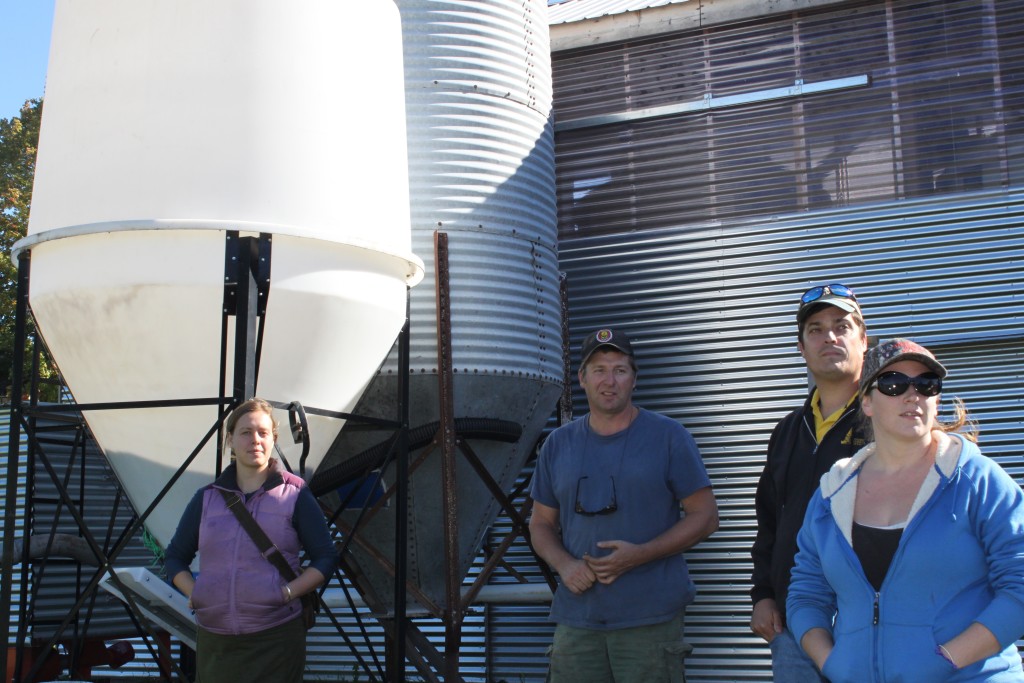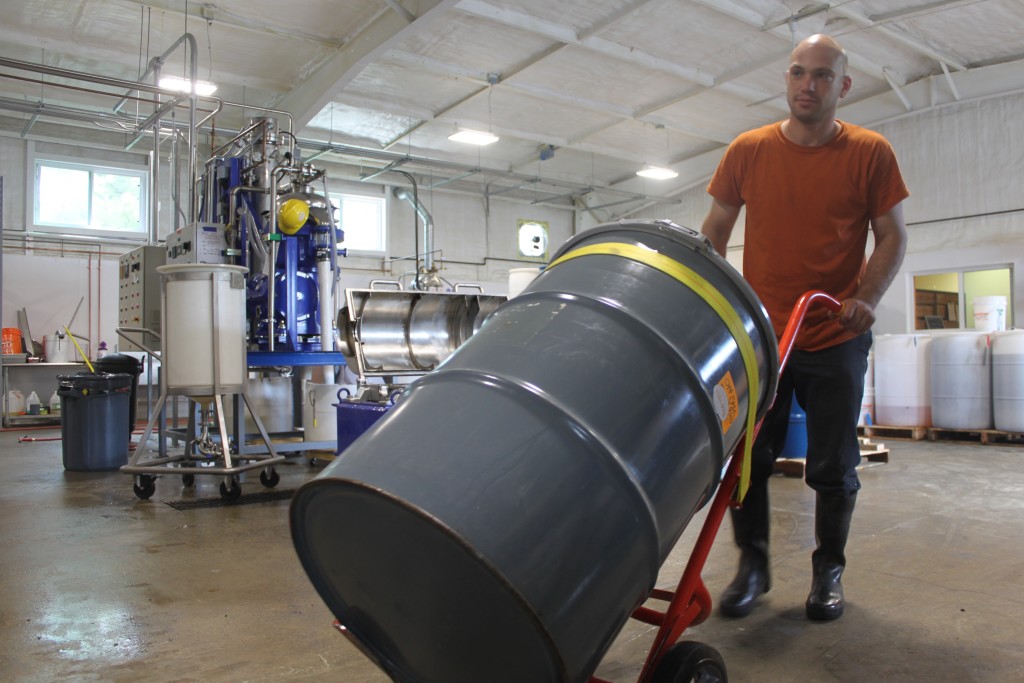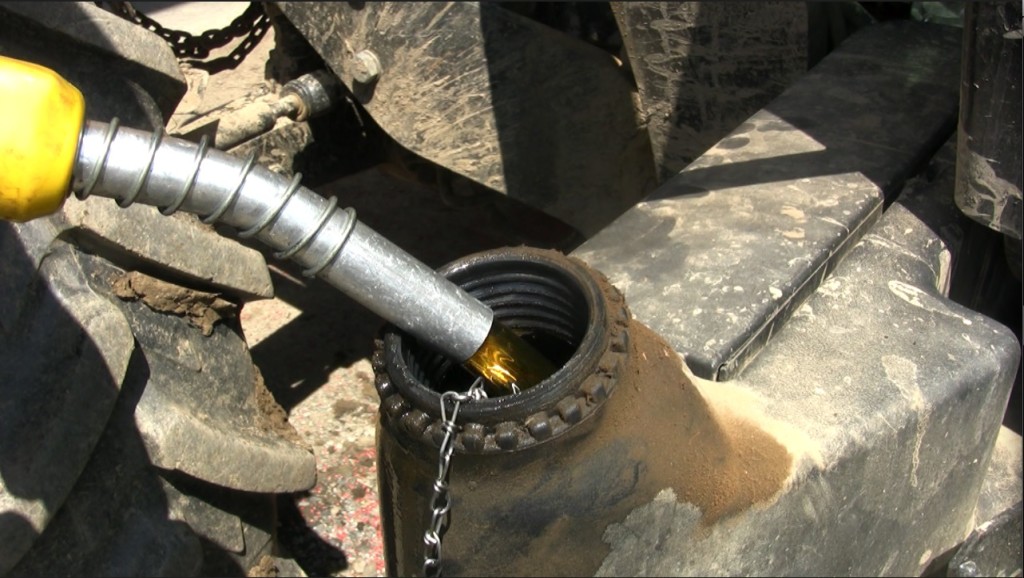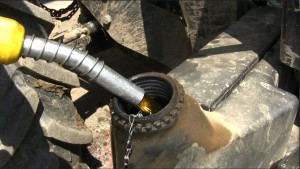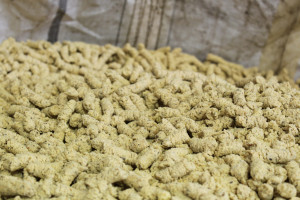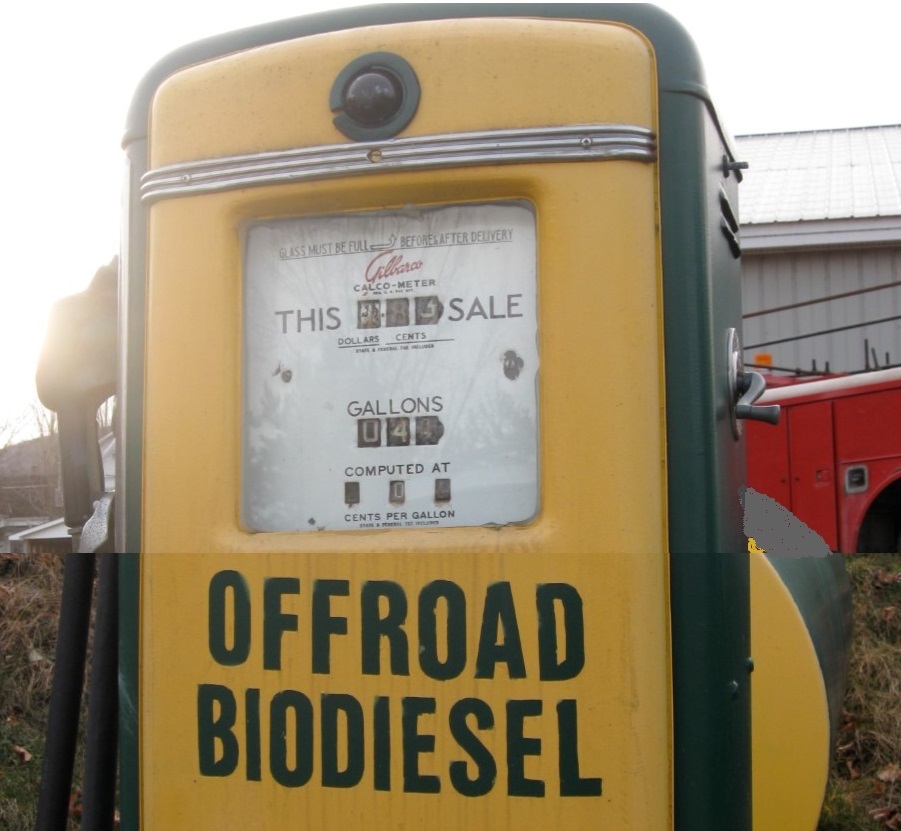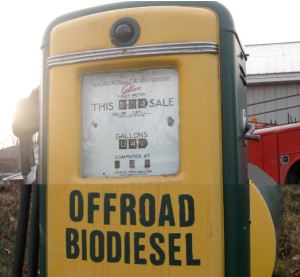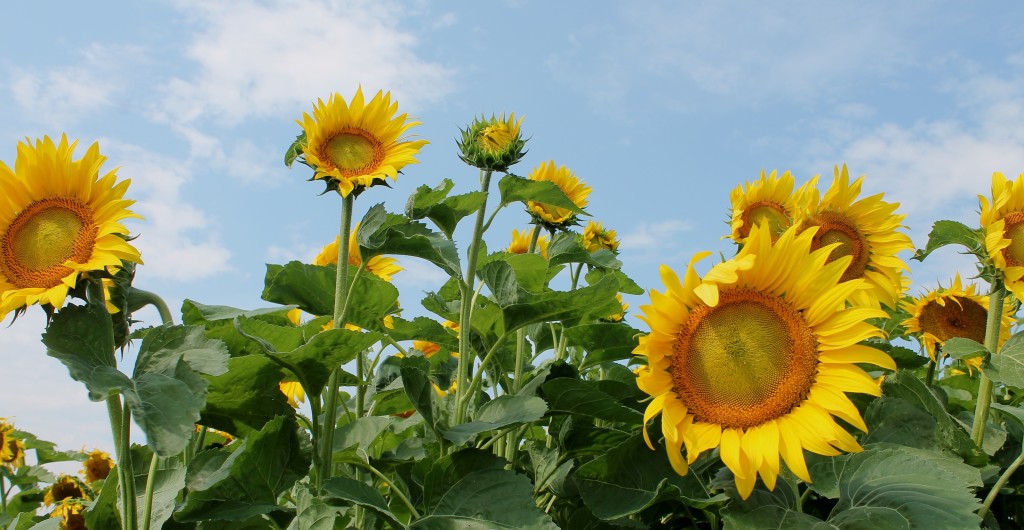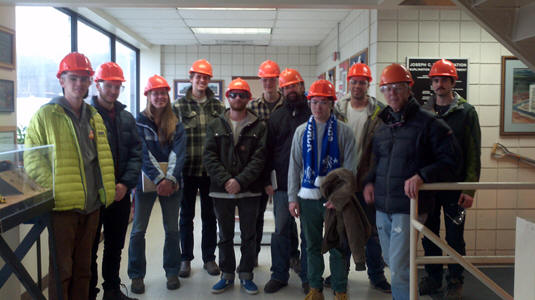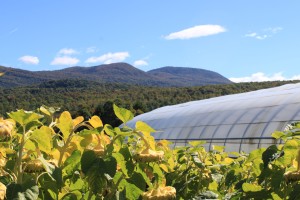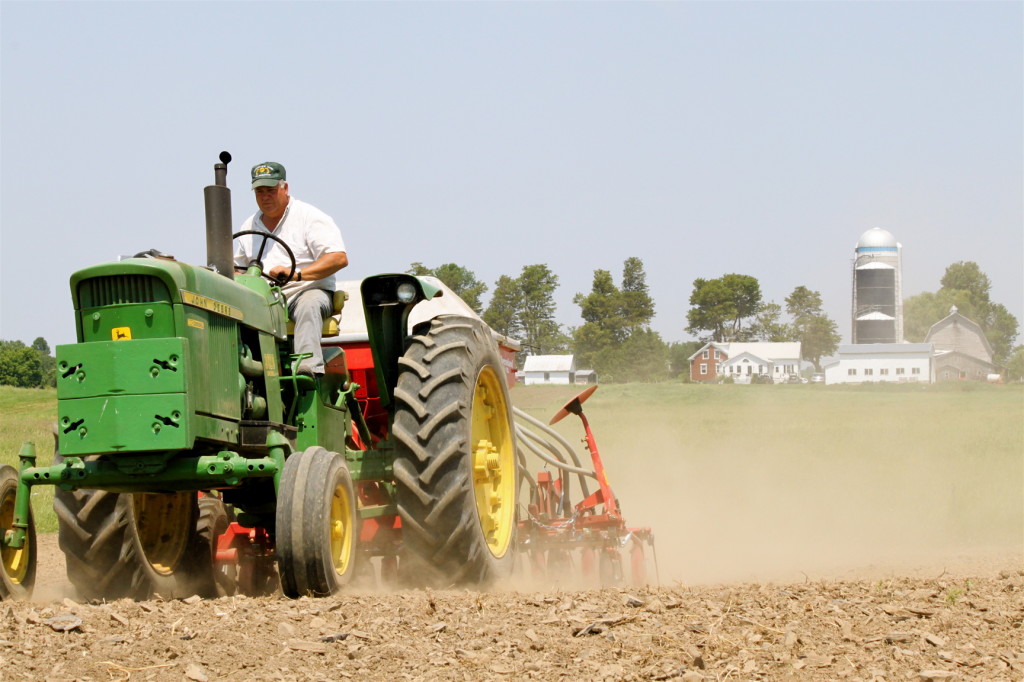17 Aug 2015
The Third Annual National Bioenergy Day
The T hird Annual National Bioenergy Day (NBD), which will take place Wednesday, October 21st, is a day that is marked with events from across the country that celebrates energy independence, local jobs, and many other benefits of local bioenergy. Led by Biomass Power Association in partnership with U.S. Forest Service, National Bioenergy Day is an opportunity for Vermonters to showcase our research, progress, and impacts in producing local bioenergy for local use.
hird Annual National Bioenergy Day (NBD), which will take place Wednesday, October 21st, is a day that is marked with events from across the country that celebrates energy independence, local jobs, and many other benefits of local bioenergy. Led by Biomass Power Association in partnership with U.S. Forest Service, National Bioenergy Day is an opportunity for Vermonters to showcase our research, progress, and impacts in producing local bioenergy for local use.
How To Get Involved:
- Organize an event on or near October 21ndthat showcases bioenergy as a clean, efficient, and resourceful way to produce energy. Emphasizes bioenergy’s role in improving environmental health; and facilitates collaboration along the supply chain.
- Partner with someone who works in the bioenergy supply chain to create an event. Use the Vermont Energy Atlas to find partners in your area.
- Piggyback on an existing event and call it a NBD event.
- Share and talk about NBD in your social media and press efforts while promoting impacts in your community.
The Vermont Bioenergy Initiative, for example, will spend the day re-capping and previewing events and research on our Twitter handle @VTBioenergy that took place throughout the summer and that are planned for the fall. We’ll be recapping and sharing exciting things like the exciting learning opportunities at the University of Vermont, Full Sun Company’s Biodiesel and Meal production, and much more!
For more information, you can visit also visit bioenergyday.com and follow @USAbiomass on twitter!
Click Here for National Bioenergy Day Participation Guide!
10 Aug 2015
Bioenergy Events 2015
The team 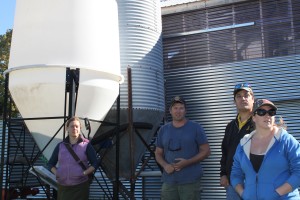 at Vermont Bioenergy Initiative has worked to put together a comprehensive list of bioenergy events for you! This list will be updated as more events arise. If you know a bioenergy events that you think should be on the list, tweet it to us! @VTbioenergy
at Vermont Bioenergy Initiative has worked to put together a comprehensive list of bioenergy events for you! This list will be updated as more events arise. If you know a bioenergy events that you think should be on the list, tweet it to us! @VTbioenergy
- September
- Modern Wood Pellet Heating Forum, Tuesday, Sep. 15, 2015, 6 – 8:30pm, Montshire Museum in Norwich, Vermont
- Ag Innovation Showcase September 14-16, 2015 St. Louis, MO
- 2nd International Conference on Past and Present Research Systems of Green Chemistry. September 14-16, 2015. Orlando, Florida
- Switchgrass III. September 30 to October 2, 2015. Knoxville, TN
- Algae Biomass Summit September 30-October 2, 2015 Washington, DC
- October
- Renewable Energy 2015 Conference & Expo. October 8-9 2015. Burlington, VT
- National Advanced Biofuels Conference & Expo. October 26 – 28, 2015. Omaha, Nebraska
- 2015 TAPPI PEERS Conference – Sustainable Solutions for Our Future. October 25-28, 2015 in Atlanta, Georgia.
- International Bioenergy and Bioproducts Conference 2015 – 10/28 – 10/30 Atlanta, United States
- 3rdAnnual National Bioenergy Day
- November
- April
In early 2014 Full Sun Company, a small start-up business was co-founded by Netaka White and Davis McManus. Fueled by an interest to help family farms grow, Full Sun began processing sunflower and non-GMO canola oil crops into specialty food-grade oil and high-protein meal for the farmers. Sunflower and canola oil distribution picked up quickly through local CSAs, farm stores, specialty food shops, health and wellness centers, and direct sales to chefs in the Northeast.
Netaka White previously served as the Vermont Bioenergy Initiative’s (VBI) program director, which directly helped to develop the business model to nurture farm partnerships, both as growers and recipients of oilseed meal – the other product that’s generated from making the oil. At Full Sun oilseeds are pressed with large mechanical machinery, producing oil and a granular meal. The team at Full Sun Company learned a lot about seed storage and oil pressing from the early VBI grantees, such as John Williamson of State Line Farm, and Roger Rainville of Borderview Farm.
The first of the two products, the seed meal, has been used as fuel for pellet stoves, or as is the case with Full Sun, sold as fertilizer for crops, or nutritional meal for livestock. At full operation, Full Sun can pump out one ton of meal per day – necessary to meet the growing demand of such customers as The Intervale in Burlington, Vermont and several local pig, poultry, dairy, and beef producers.
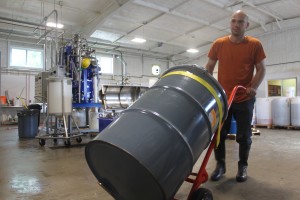
Full Sun Company employee, Zach Hartlyn, moves an off-spec oil barrel for biodiesel production
Credit: Full Sun Company
The second product, the oil, is used as culinary oil for cooking. Staying true to their commitment to an extraordinary culinary product, Full Sun Company diverts any of the oil that does not meet their standards to Vermont Bioenergy Initiative biofuel producers to undergo further processing and become biofuel. Approximately 250-300 gallons of off-spec oil for biodiesel has been processed since February, 2014.
In October, 2014, Full Sun Company halted operation to make room for growth to meet the increased demand for their products and scale up to align with Vermont’s accelerating agricultural economy. White and McManus acquired the former Vermont Soap building in Middlebury, Vermont in order to build a full scale mill and achieve their anticipated greater capacity. Over the course of one of the coldest winters in recent history, the Full Sun team made the renovations and adjustments needed to repurpose the building into the first non-GMO verified oil mill in New England. By March of 2015 Full Sun Company had pressed sunflower and canola seeds to make their first batch of specialty oils. The new operation can yield 130 gallons of oil per day – about 2600 gallons per month!
With no shortage of innovation or ambition, White notes, “David and I are in this with the interest of having a transformative effect on local agriculture and food systems.” Well on their way, the operation is certified GMO free, and the next steps are being taken towards becoming certified organic.
As they grow, Full Sun would like to buy from local grower-suppliers and work with local businesses to package and label feed to be distributed to farmers of varying sizes, from backyard chicken growers to larger operations. Collaborating with Vermont breweries and distilleries is also in queue. Full Sun is working with one local distillery to put together “a package” for farmers so they have markets for profitable grain crops throughout four years of rotation (rye, wheat, sunflowers, etc.) and can offer farmers the indexed prices for these locally grown grains and oilseeds.
29 Jun 2015
Soybeans for On-farm Biodiesel Production
Mark Mordasky, owner of Rainbow Valley Farm in Orwell, Vermont has been growing soybeans as a cash crop and for on-farm biodiesel and animal feed since 2008. When fuel prices began to climb, Mark took initiative and started searching for an innovative and more cost efficient way to meet his farm’s energy demands. The Vermont Sustainable Jobs Fund was able to help Mark take his first steps towards sustainable biofuel production. Mark is able to press these soybeans after harvesting and make two distinct products, oil and meal. The meal is an instantly marketable product and can be sold as feedstock or organic fertilizer; the oil will be further processed into biodiesel.
Soybeans crops are well suited for biodiesel production in Vermont and perform best in heavy soil like those found in Addison County, as University of Vermont Extension Agronomist, Heather Darby explains. Soybeans don’t always do well in in light, well drained soils, and as with any crop the best way to understand the demands of any crops is to contact your University Extension and have your soil tested. Additionally, because soybeans are a legume, they produce nitrogen in association with bacteria, meaning that these crops don’t require the application of additional nitrogen to produce a high yield. These low input, high yield crops are fairly easy to grow, are well suited to the Vermont climate, and afford farmers flexible planting dates. Heather and the rest of the UVM Extension team have seen yields ranging from 35 bushels per acre to up to 85 bushels per acre with varying practices.
In the below video, Mike Mordasky shares his experience and knowledge of soybean production from planting through harvesting harvest and beyond to storage and the creation of the final products. In addition, Heather Darby shares here insights into maturity groupings, variety selection, and best growing practices.
01 Jun 2015
Food Versus Fuel – Local Production for Local Use – Biodiesel as Part of Sustainable Agriculture
Nationally, corn-based ethanol and palm oil based biodiesel are gaining negative attention for their impacts on the environment and food security. But here in Vermont, farms are producing on-farm biodiesel to power equipment and operations on the farm and the local farm community. This is a profoundly different model from national and international biofuel production. Agricultural Engineering and Agronomy Researchers at University of Vermont Extension in partnership with farmers and the Vermont Bioenergy Initiative have developed a model of local minded, on-farm production of biofuels that can help rural communities transition away from unsustainable models of food, feed and fuel production.
National and global models of corn-ethanol and soy oil-biodiesel production are resulting in large-scale land conversions in some parts of the world, in particular to a loss of native grass and forestland. This type of biofuel production is not happening in Vermont, where bioenergy production incorporates rotational oilseed crops like sunflowers and soybeans on Vermont farms.
Locally produced biodiesel supports resiliency in Vermont, a cold climate state which is particularly dependent on oil. Over $1 billion leaves the state for heating and transportation fuel costs. Heating and fuel independence by producing on-farm biodiesel provides farmers fuel security which is comparable to that which is sought by Vermont’s local food movement.
The local production for local use model results in two products from one crop: oil and meal (animal feed or fertilizer). By growing oilseed and pressing the seed to extract the oil, farms are creating a valuable livestock feed at home, rather than importing it. The oil can be sold as a food product, used directly in a converted engine or converted to biodiesel for use in a standard diesel engine. In this way, oilseed crops offer flexibility in the end-use of the products. US corn-based ethanol mandates are raising grain costs nationally, making feed expensive for Vermont farmers. Local bioenergy production means farmers produce their own feed, fuel, and fertilizer for on-farm use, at a fraction of the cost and more stable prices. Reduced and stable prices for feed, fuel, and fertilizer can mean improved economic viability for Vermont farms and more stable food prices for Vermont consumers in the future.
Overall viability can be seen in the local production for local use model by considering economics, energy and carbon emissions. Biodiesel production costs of between $0.60 and $2.52 per gallon have been estimated for farm-scale production models, which are generally below market price for diesel fuel. The net energy return in Vermont on-farm biodiesel operations has been estimated at between 2.6 and 5.9 times the invested energy (i.e. more energy out than was required to produce the fuel), demonstrating strong returns and potential for improvement with increased scale. Furthermore, oilseed-based production of biodiesel has been estimated to result in a net reduction of carbon dioxide emissions of up to 1420 lbs. per acre, the equivalent of about 1500 miles of car travel per year.
Categorizing the Vermont biofuel model with national models and trends is inaccurate, considering the innovative and efficient systems benefiting Vermont farmers. While national and international analysis weighs the benefits of food versus fuel, the model is quite unique in Vermont and the food versus fuel challenge is well met. The model developed in Vermont does however have wider-reaching implications in that this can be replicated in rural farm communities across the US.
As John Williamson of Stateline Farm, a Vermont Bioenergy grant recipient says, “100 years ago everyone produced their own fuel; we are just doing that now in a different way.”
19 May 2015
Mitigating Potential Biomass Feedstock Pests
The Vermont Bioenergy Initiative aims to connect diversified agriculture and local renewable energy production for on-farm and community use by supporting research, technical assistance, and infrastructure development in emerging areas of bioenergy including biodiesel production and distribution. As we move into the growing season, there are a variety of pests that can potentially affect sunflower, canola, and soybean biomass feedstock production. In this video a University of Vermont agronomist explains how to control theses potential biomass feedstock pests and increase crop, and eventually biofuel, yields without heavy reliance on pesticides and herbicides.
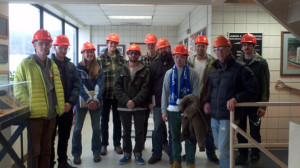 Coming this fall the University of Vermont will be offering a bioenergy course taught by Anju Dahiya, cofounder of General Systems Research, LLC, lead biofuels instructor at the University of Vermont’s Rubenstein School of Environment and Natural Resources, and Vermont Bioenergy algae for biofuel grant recipient. This course is open to both degree and non-degree students from any background or department, as well as farmers, entrepreneurs, and teachers interested in developing curriculum, or projects at school or college levels. This course is also approved for graduate credit.
Coming this fall the University of Vermont will be offering a bioenergy course taught by Anju Dahiya, cofounder of General Systems Research, LLC, lead biofuels instructor at the University of Vermont’s Rubenstein School of Environment and Natural Resources, and Vermont Bioenergy algae for biofuel grant recipient. This course is open to both degree and non-degree students from any background or department, as well as farmers, entrepreneurs, and teachers interested in developing curriculum, or projects at school or college levels. This course is also approved for graduate credit.
Potential participants are offered the option of variable credits, ranging from 0 to 6 credit hours. This allows prospective students to only attend lectures and have access to online course materials for 2 credits; further their experience with the addition of hands-on labs and field trips for 3 credits; or participate in all aspects of the class while additionally applying lessons to a service learning project with a community partner, earning 4 credits. Participants have the ability to add up to 2 more credits, totaling no more than 6, for additional work with the community partner pending special permission from the course instructor.
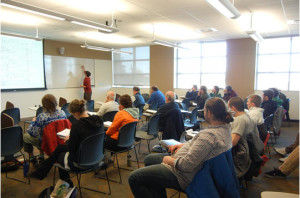 Lectures will be held twice a week between September 18th and December 9th of 2015. Friday lectures will be on campus from 4:05 pm to 7:05 pm, followed by Saturday morning field trips between 10:00 am and 1:00 pm for those students who elected for 3 credits or more. The course required textbook, Bioenergy: Biomass to Biofuels, was edited by Anju Dahiya less than a year ago and represents a compilation of work from an extensive list of well-respected university extension programs, such as The University of Vermont Research Extension, as well as numerous national organizations including the US Department of Energy’s National Renewable Energy Laboratories.
Lectures will be held twice a week between September 18th and December 9th of 2015. Friday lectures will be on campus from 4:05 pm to 7:05 pm, followed by Saturday morning field trips between 10:00 am and 1:00 pm for those students who elected for 3 credits or more. The course required textbook, Bioenergy: Biomass to Biofuels, was edited by Anju Dahiya less than a year ago and represents a compilation of work from an extensive list of well-respected university extension programs, such as The University of Vermont Research Extension, as well as numerous national organizations including the US Department of Energy’s National Renewable Energy Laboratories.
Learn more about this course at the University of Vermont Renewable BioEnergy page or email the lead instructor Anju Dahiya at adahiya@uvm.edu.
- February
- Biomass Boot Camp, February 23, Catonsville, MD
- Farm Energy IQ – Training for NE Ag Service Providers in VT February 23- 25, Fairlee, VT
- ACI’s 4th Carbon Dioxide Utilization Conference 2015 February 25-26 San Antonio, TX
- 2015 Executive Leadership Conference. 25 February – 1 March 2015. Phoenix, Arizona
- March
- World Agri-Tech Investment Summit. March 3-4, 2015 San Francisco, CA
- Waste to Biogas and Clean Fuels Finance and Investment Summit. March 3-4 San Jose, CA
- Farm Energy IQ – Training for NE Ag Service Providers March 10-12, 2015 State College, PA
- Advanced Bioeconomy Leadership Conference March 11-15, 2015 Washington, DC
- Next-Generation Defense Energy Symposium. 17 – 18 March, 2015. Washington, United States
- WEBINAR: Using B100 in Our Class-8 Trucking Operations (60 trucks) in Tennessee March 19, 2015 10:00 AM ET
- ACI’s Annual Lignofuels Americas Summit March 25-26, 2015 Milwaukee, WI
- Forest Products and Timberland Investment Conference. March 31-April 1, 2015. New York, NY
- April
- Applying Renewable Energy – Online Training April 01, 2015 at 09:00 AM to June 30, 2015 at 06:00 PM
- Farm Energy IQ – Training for NE Ag Service Providers in NJ, April 8- 10, Bordentown, NJ
- 5th Defense Renewable Energy Summit. 7-8 April 2015. Arlington, VA
- Good Jobs, Green Jobs 2015 April 13 Washington, D.C
- 2015 Northeast Biomass Heating Expo. April 16-18, 2015. Portland, ME
- Introduction to Renewable Energy Technologies Start date: 20 to 22, 2015
- International Biomass Conference and Expo. 20 -22 April 2015. Minneapolis, MN
- 37th Symposium on Biotechnology for Fuels and Chemicals. April 27 – 30, 2015 San Diego, CA
Farmers in Vermont are making their own biodiesel from sunflowers, and maybe you have wondered: Can I do that?
First, you might be interested to watch this video on growing sunflowers for biodiesel:
You may be interested in increasing self-sufficiency, replacing fossil fuel with a renewable or saving $2.00 per gallon on diesel fuel. But can the average landowner grow their biodiesel?
Land is the first thing needed to grow sunflowers. But most homesteaders or homeowners are not likely to have the equipment required for producing their own biodiesel, like a combine for harvesting the sunflowers, an oilseed press for extracting oil and a processor for converting the oil to biodiesel. These are expensive pieces of equipment that require a good deal of know-how, and the payback just isn’t there for the small-time producer.
Processing can be done, however, at some on-farm facilities, including Borderview Research Farm in Alburgh, State Line Biofuel Farm in North Bennington and other private farms, or in conjunction with other farms growing oilseeds like Woods Market Garden in Brandon and Ekolott Farm in Newbury. Growers located near to these farms could consider growing oilseeds on their land and bringing them to a nearby facility for processing into biodiesel.
Those wishing to purchase locally-grown biodiesel can also look to Full Sun Company in Middlebury, who will be providing to consumers biodiesel fuel made from recycled cooking oil produced at their Vermont mill and made from locally-grown oilseeds like soybeans, canola and sunflowers.
For growers that do have the land available for oilseed production and a place to process their seed, the growing manual “Oilseed Production in the Northeast” by Dr. Heather Darby at University of Vermont Extension is a useful resource. Those considering the economics of this endeavor should download the “Oilseed Cost and Profit Calculator” produced by Chris Callahan PE at UVM Extension. For more resources including videos, image galleries, reports and helpful links, click to learn more about growing oilseeds for biofuel.
05 May 2014
Small-scale Oilseed Production in the Northeast
Country Folks is a weekly farm paper highlighting the many facets of agricultural life. The publication included an article on two recent webinars on the topic of oilseeds in the Northeast. The article features Roger Rainville, an Alburgh farmer who is growing oilseeds for biodiesel production on his farm, and Penn State and University of Vermont researchers who recently concluded an evaluation of small-scale oilseed presses. 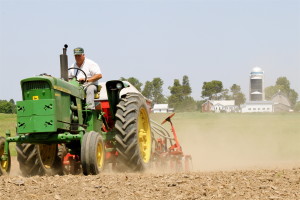
The article talks about growing and harvesting oilseeds, pressing, conversion to biodiesel, and by-product oilseed meal.
Click here to see the full article in Country Folks newspaper.





